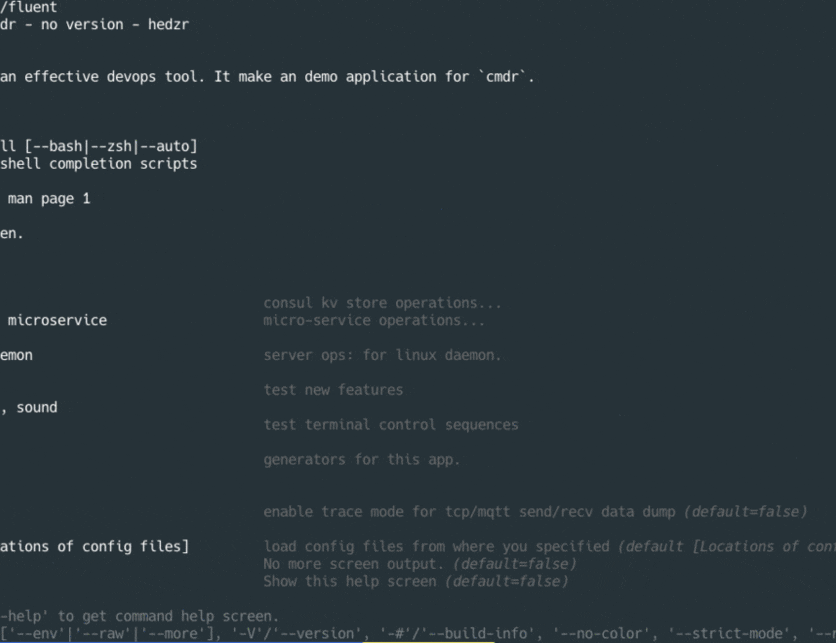Gostradamus: Better DateTimes for Go
Introduction
Gostradamus is a Go library that offers a lightweight and human-friendly way to create, transform, format, and parse datetimes. It uses the underlying Go time library and the main gostradamus' type DateTime can be easily converted to and from time.Time.
Gostradamus is named after the french pharmacist Nostradamus. He is known for his prophecies, therefore he worked a lot with time, like Gostradamus.
Features
time.Time and gostradamus.DateTime
YYYY-MM-DD HH:mm:ss
Basic Usage
package main
import "github.com/bykof/gostradamus"
func main() {
// Easy parsing
dateTime, err := gostradamus.Parse("14.07.2017 02:40:00", "DD.MM.YYYY HH:mm:ss")
if err != nil {
panic(err)
}
// Easy manipulation
dateTime = dateTime.ShiftMonths(-5).ShiftDays(2)
// Easy formatting
println(dateTime.Format("DD.MM.YYYY HH:mm:ss"))
// 16.02.2017 02:40:00
// Easy helper functions
start, end := dateTime.SpanWeek()
println(start.String(), end.String())
// 2017-02-13T00:00:00.000000Z 2017-02-19T23:59:59.999999Z
}
Table of Contents
- Types
- Conversion between time.Time and gostradamus.DateTime
- Creation
- Timezones
- Shift
- Replace
- Token Table
- Parsing
- Formatting
- Floor
- Ceil
- Spans
- Utils
- Contribution
- License
Usage
This part introduces all basic features of gostradamus. Surely there are more, just look them up in the offical documentation.
Types
There are two types in this package, which are important to know:
type DateTime time.Time
type Timezone string
DateTime contains all the creation, transforming, formatting and parsing functions.
Timezone is just a string type but gostradamus has all timezones defined as constants. Look here.
Conversion between time.Time and gostradamus.DateTime
You can easily convert between gostradamus.DateTime and time.Time package. Either with helper functions or with golang's type conversion
import "time"
// From gostradamus.DateTime to time.Time
dateTime := gostradamus.Now()
firstTime := dateTime.Time()
secondTime := time.Time(dateTime)
// From time.Time to gostradamus.DateTime
t := time.Now()
dateTime = gostradamus.DateTimeFromTime(t)
dateTime = gostradamus.DateTime(t)
Creation
If you want to create a gostradamus.DateTime you have several ways:
Just create the DateTime from scratch:
// Create it with a defined timezone as you know it
dateTime := gostradamus.NewDateTime(2020, 1, 1, 12, 0, 0, 0, gostradamus.EuropeBerlin)
// Create it with predefined UTC timezone
dateTime := gostradamus.NewUTCDateTime(2020, 1, 1, 12, 0, 0, 0)
// Create it with local timzone
dateTime := gostradamus.NewLocalDateTime(2020, 1, 1, 12, 0, 0, 0)
Or create a DateTime from an ISO-8601 format:
dateTime := gostradamus.Parse("2017-07-14T02:40:00.000000+0200", gostradamus.Iso8601)
Or from a custom format:
dateTime := gostradamus.Parse("10.02.2010 14:59:53", "DD.MM.YYYY HH:mm:ss")
Or an UNIX timestamp for example:
dateTime := gostradamus.FromUnixTimestamp(1500000000)
Or different ways of the current datetime:
// Current DateTime in local timezone
dateTime := gostradamus.Now()
// Current DateTime in UTC timezone
dateTime = gostradamus.UTCNow()
// Current DateTime in given timezone
dateTime = gostradamus.NowInTimezone(gostradamus.EuropeParis)
Timezones
Feel free to use all available timezones, defined here:
gostradamus.EuropeParis // Europe/Paris
gostradamus.EuropeBerlin // Europe/Berlin
gostradamus.AmericaNewYork // America/New_York
... and many more
Convert between timezones easily:
dateTime := gostradamus.NewUTC(2020, 1, 1, 12, 12, 12, 0).InTimezone(gostradamus.EuropeBerlin)
println(dateTime.String())
// 2020-02-15T13:12:12.000000+0100
dateTime = dateTime.InTimeZone(America_New_York)
println(dateTime.String())
// 2020-02-15T07:12:12.000000-0500
Shift
Shifting helps you to add or subtract years, months, days, hours, minutes, seconds, milliseconds, microseconds, and nanoseconds.
To add a value use positive integer, to subtract use negative integer.
dateTime := gostradamus.NewUTCDateTime(2020, 1, 1, 1, 1, 1, 1)
dateTime = dateTime.ShiftYears(10)
println(dateTime.String())
// 2030-01-01T01:01:01.000000+0000
dateTime = gostradamus.NewUTCDateTime(2020, 1, 1, 1, 1, 1, 1)
dateTime = dateTime.ShiftDays(-10)
println(dateTime.String())
// 2019-12-22T01:01:01.000000+0000
dateTime = gostradamus.NewUTCDateTime(2020, 1, 1, 1, 1, 1, 1)
dateTime = dateTime.ShiftWeeks(2)
println(dateTime.String())
// 2020-01-15T01:01:01.000000+0000
dateTime = gostradamus.NewUTCDateTime(2020, 1, 1, 1, 1, 1, 1)
dateTime = dateTime.Shift(0, 1, 10, 0, 0, 0, 0)
println(dateTime.String())
// 2020-02-11T01:01:01.000000+0000
Replace
Replacing values can be done easily.
dateTime := gostradamus.NewUTCDateTime(2020, 1, 1, 1, 1, 1, 1)
dateTime = dateTime.ReplaceYear(2010)
println(dateTime.String())
// 2010-01-01T01:01:01.000000+0000
dateTime = gostradamus.NewUTCDateTime(2020, 1, 1, 1, 1, 1, 1)
dateTime = dateTime.ReplaceYear(2010).ReplaceMonth(2)
println(dateTime.String())
// 2010-02-01T01:01:01.000000+0000
Token Table
| Token | Output | |
|---|---|---|
| Year | YYYY | 2000, 2001, 2002 … 2012, 2013 |
| YY | 00, 01, 02 … 12, 13 | |
| Month | MMMM | January, February, March … |
| MMM | Jan, Feb, Mar … | |
| MM | 01, 02, 03 … 11, 12 | |
| M | 1, 2, 3 … 11, 12 | |
| Day of Year | DDDD | 001, 002, 003 … 364, 365 |
| Day of Month | DD | 01, 02, 03 … 30, 31 |
| D | 1, 2, 3 … 30, 31 | |
| Day of Week | dddd | Monday, Tuesday, Wednesday … |
| ddd | Mon, Tue, Wed … | |
| Hour | HH | 00, 01, 02 … 23, 24 |
| hh | 01, 02, 03 … 11, 12 | |
| h | 1, 2, 3 … 11, 12 | |
| AM / PM | A | AM, PM |
| a | am, pm | |
| Minute | mm | 00, 01, 02 … 58, 59 |
| m | 0, 1, 2 … 58, 59 | |
| Second | ss | 00, 01, 02 … 58, 59 |
| s | 0, 1, 2 … 58, 59 | |
| Microsecond | S | 000000 … 999999 |
| Timezone | ZZZ | Asia/Baku, Europe/Warsaw, GMT |
| zz | -07:00, -06:00 … +06:00, +07:00, +08, Z | |
| Z | -0700, -0600 … +0600, +0700, +08, Z |
Parsing
Please consider that you cannot put custom tokens or custom letters into the parsing string
Easily parse with Parse:
dateTime, err := gostradamus.Parse("10.02.2010 14:59:53", "DD.MM.YYYY HH:mm:ss")
println(dateTime.String())
// 2010-02-10T14:59:53.000000Z
You can also specify a timezone while parsing:
dateTime, err := gostradamus.ParseInTimezone("10.02.2010 14:59:53", "DD.MM.YYYY HH:mm:ss", gostradamus.EuropeBerlin)
println(dateTime.String())
// 2010-02-10T14:59:53.000000+0100
Formatting
Formatting is as easy as parsing:
dateTimeString := gostradamus.NewDateTime(2017, 7, 14, 2, 40, 0, 0, UTC).Format("DD.MM.YYYY Time: HH:mm:ss")
println(dateTimeString)
// 14.07.2017 Time: 02:40:00
Floor
dateTimeString := gostradamus.NewDateTime(2017, 7, 14, 2, 40, 0, 0, UTC).FloorDay()
println(dateTimeString.String())
// 2017-07-14T00:00:00.000000Z
dateTimeString := gostradamus.NewDateTime(2017, 7, 14, 2, 40, 0, 0, UTC).FlorHour()
println(dateTimeString.String())
// 2017-07-14T02:00:00.000000Z
Ceil
dateTimeString := gostradamus.NewDateTime(2017, 7, 14, 2, 40, 0, 0, UTC).CeilMonth()
println(dateTimeString.String())
// 2017-07-31T23:59:59.999999Z
dateTimeString := gostradamus.NewDateTime(2017, 7, 14, 2, 40, 0, 0, UTC).CeilSecond()
println(dateTimeString.String())
// 2017-07-14T02:40:00.999999Z
Spans
Spans can help you to get quickly the current span of the month or the day:
start, end := NewDateTime(2017, 7, 14, 2, 40, 0, 0, UTC).SpanMonth()
println(start.String())
// 2017-07-01T00:00:00.000000Z
println(end.String())
// 2017-07-31T23:59:59.999999Z
start, end = NewDateTime(2017, 7, 14, 2, 40, 0, 0, UTC).SpanDay()
println(start.String())
// 2017-07-14T00:00:00.000000Z
println(end.String())
// 2017-07-14T23:59:59.999999Z
start, end = NewDateTime(2012, 12, 12, 2, 40, 0, 0, UTC).SpanWeek()
println(start.String())
// 2012-12-10T00:00:00.000000Z
println(end.String())
// 2012-12-16T23:59:59.999999Z
Utils
Here is the section for some nice helper functions that will save you some time.
IsBetween
isBetween := gostradamus.NewUTCDateTime(2020, 1, 1, 12, 0, 0, 0).IsBetween(
gostradamus.NewUTCDateTime(2020, 1, 1, 11, 0, 0, 0),
gostradamus.NewUTCDateTime(2020, 1, 1, 13, 0, 0, 0),
)
println(isBetween)
// true
isBetween = gostradamus.NewUTCDateTime(2020, 1, 1, 12, 0, 0, 0).IsBetween(
gostradamus.NewUTCDateTime(2020, 1, 1, 13, 0, 0, 0),
gostradamus.NewUTCDateTime(2020, 1, 1, 14, 0, 0, 0),
)
println(isBetween)
// false
IsoCalendar
Retrieve year, month, day directly as a 3-tuple:
year, month, day := gostradamus.NewUTCDateTime(2020, 1, 1, 12, 0, 0, 0).IsoCalendar()
println(year, month, day)
// 2020 1 1
Contribution
Do you have an idea to improve Gostradamus? -> Create an issue
Do you have already coded something for Gostradamus? -> Create a pull request.
Did you discover a bug? -> Create an issue
Otherwise feel free to contact me: [email protected] or visit my webpage: bykovski.de
License
MIT licensed. See the LICENSE file for details.















